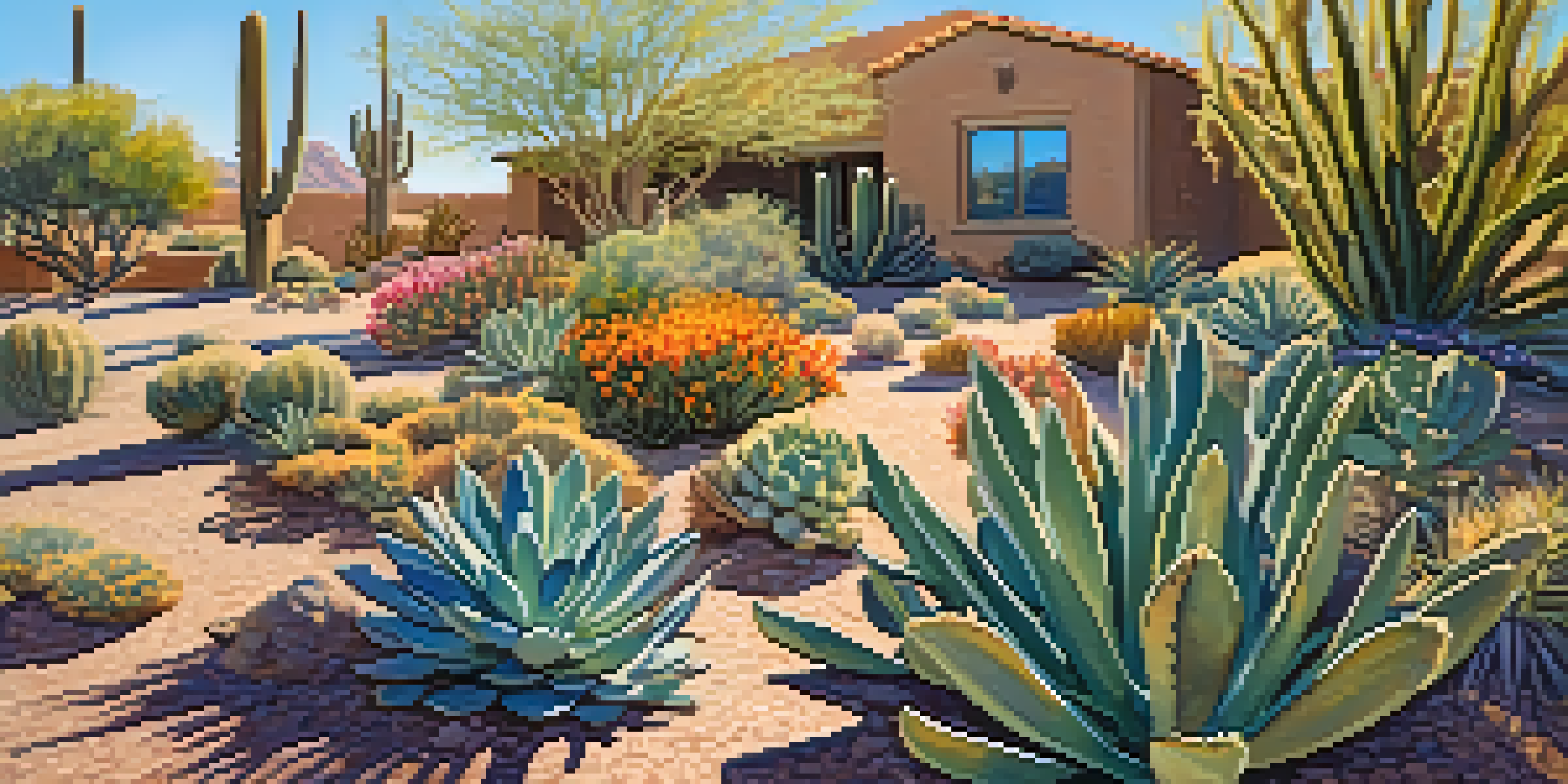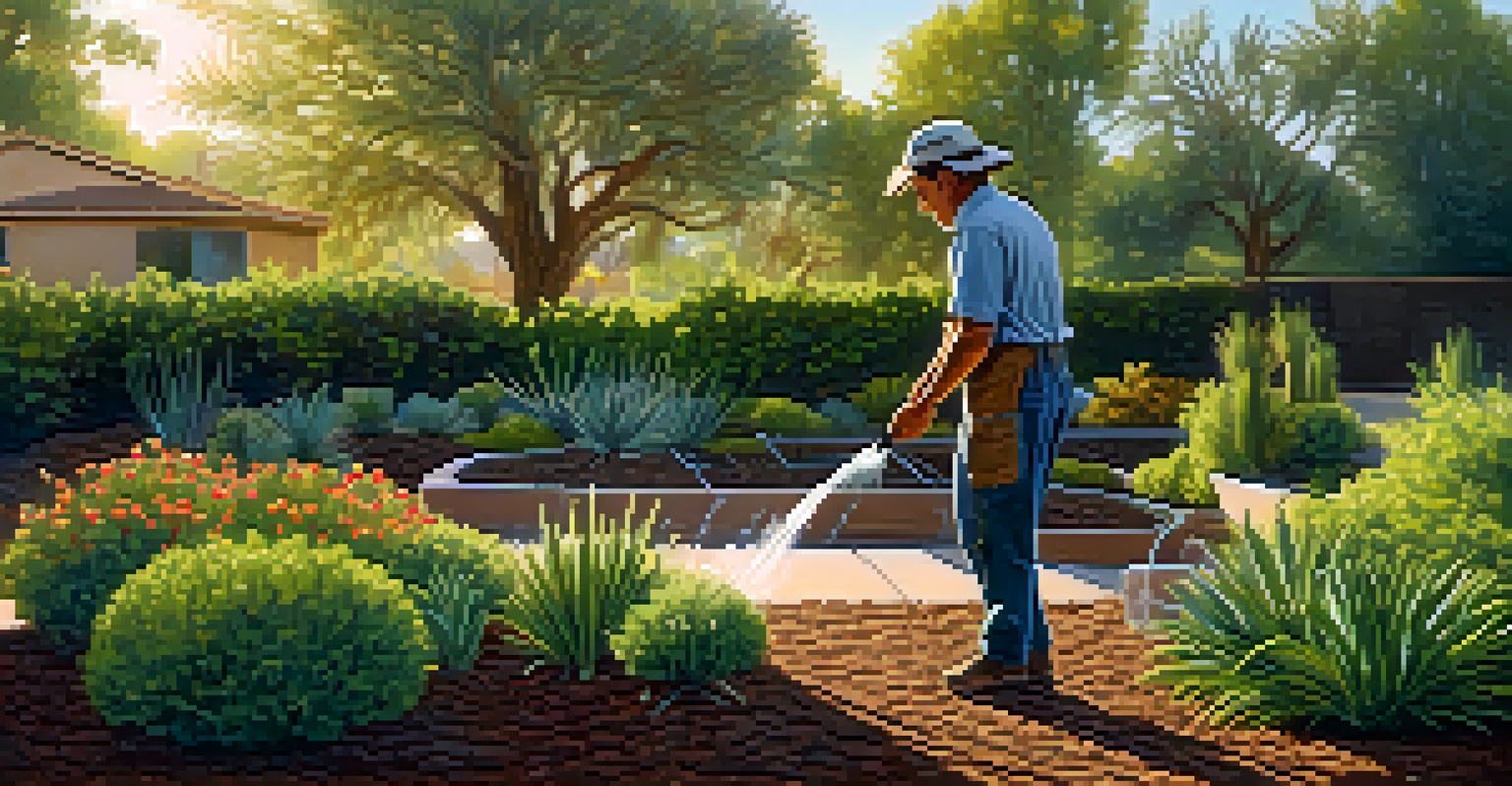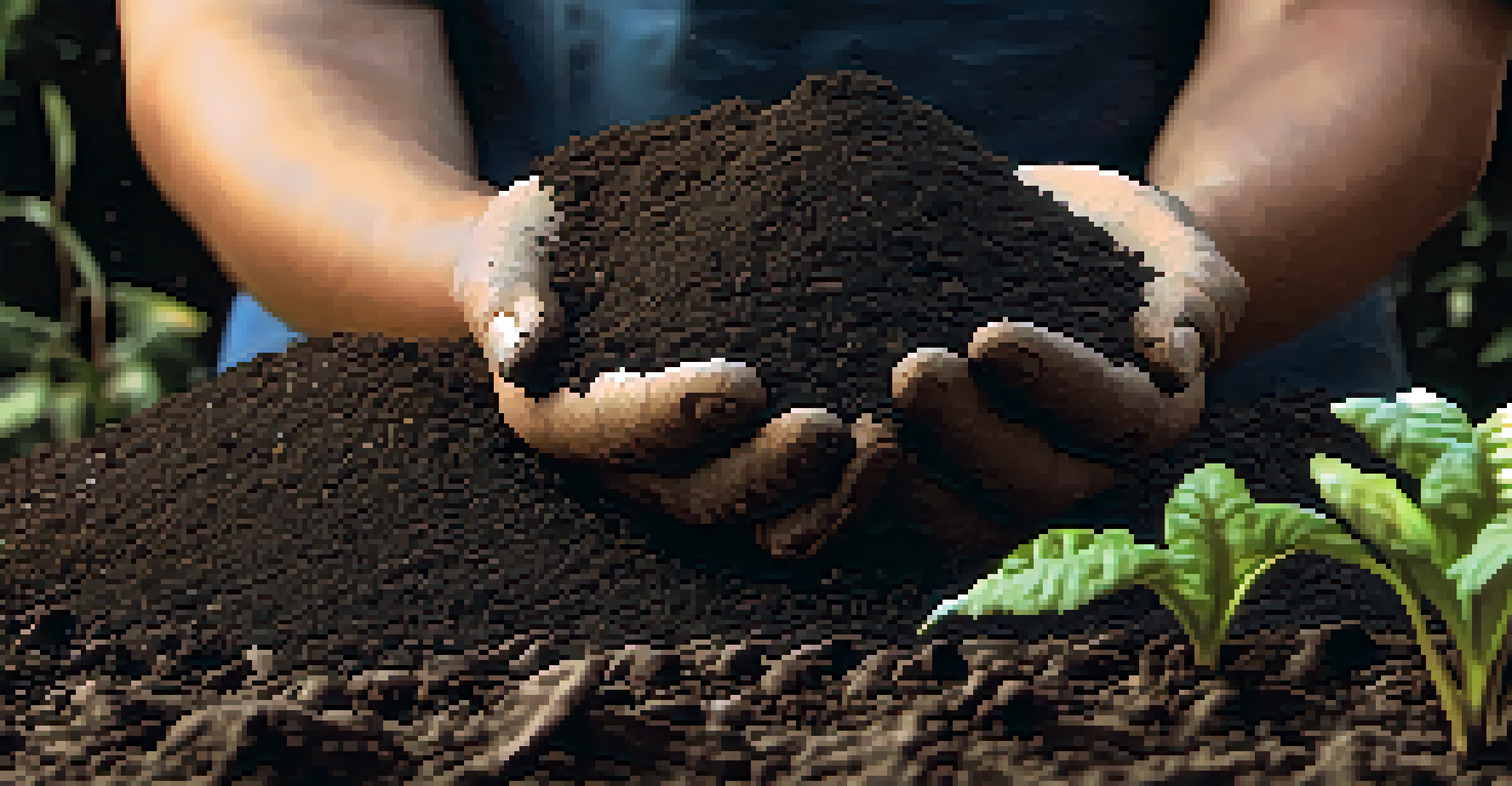Essential Tips for Gardening in Phoenix's Arid Climate

Understanding Phoenix's Unique Climate and Soil
Phoenix is characterized by its arid climate, with hot summers and mild winters. This means that your garden will face intense heat and minimal rainfall, making it crucial to choose plants that can withstand these conditions. Understanding your soil type is equally important, as many areas have sandy or rocky soil that drains quickly, which can affect moisture retention.
The best time to plant a tree was twenty years ago. The second best time is now.
To successfully garden in Phoenix, consider conducting a soil test to determine its pH and nutrient levels. This will help you amend the soil effectively, ensuring your plants have a solid foundation. Remember, the right soil preparation can make a significant difference in your plants' growth and resilience against the harsh climate.
For those new to gardening in this region, starting with native plants can be a game-changer. These plants are naturally adapted to the local environment, requiring less water and maintenance while thriving in the heat.
Choosing the Right Plants for Your Garden
When it comes to selecting plants, opt for drought-resistant varieties that can thrive in Phoenix's climate. Succulents, cacti, and many native flowers are excellent options, as they require less water and can handle the intense sun. Additionally, consider incorporating shade trees to provide relief for smaller plants and improve your garden's overall microclimate.

Herbs like rosemary, sage, and thyme are also great choices since they not only tolerate dry conditions but can enhance your cooking too! By choosing the right plants, you can create a vibrant and sustainable garden that flourishes despite the heat.
Adapt to Phoenix's Climate
Understanding the unique arid climate and soil conditions in Phoenix is crucial for selecting the right plants and ensuring successful gardening.
Lastly, don't shy away from experimenting with different plant combinations. Mixing textures and colors will not only make your garden visually appealing but also promote biodiversity, which can lead to a healthier ecosystem.
Watering Wisely: Techniques for Arid Gardens
Watering in an arid climate can be tricky, but with the right techniques, you can conserve water while keeping your plants healthy. Early morning is the ideal time to water your garden, as it allows the moisture to seep deep into the soil before the sun’s heat evaporates it. This practice also minimizes the risk of fungal diseases that can occur with evening watering.
Gardening is a way of showing that you believe in tomorrow.
Consider using drip irrigation or soaker hoses, which deliver water directly to the plant roots, reducing evaporation and runoff. This efficient watering method ensures your plants receive consistent moisture without waste, making it perfect for the water-conscious gardener.
Additionally, applying mulch around your plants can help retain soil moisture and regulate temperature. Organic mulches like wood chips or straw not only provide these benefits but also enrich the soil as they decompose, creating a healthier environment for your plants.
Creating Shade and Microclimates in Your Garden
Creating shade in your garden can drastically improve plant health in Phoenix’s relentless sun. Consider planting larger trees or installing shade structures to shield delicate plants from direct sunlight during the hottest parts of the day. This can help prevent sunburn on leaves and reduce water loss due to evaporation.
You can also take advantage of microclimates by positioning plants strategically. For instance, placing heat-tolerant plants next to walls or fences can create a protective barrier that retains warmth during cooler nights while shielding them from harsh winds.
Water Wisely for Plant Health
Utilizing efficient watering techniques like drip irrigation and mulching can help conserve water while maintaining plant health in an arid environment.
Don’t forget about using containers to create movable shade. By grouping pots together or placing them under existing shade, you can easily adjust your garden layout throughout the season based on sunlight patterns.
Soil Amendments for Improved Plant Health
Improving your soil health is key to successful gardening in arid conditions. Incorporating organic matter like compost can enhance soil structure, improve water retention, and provide essential nutrients for your plants. Regularly adding compost not only enriches the soil but also encourages beneficial microorganisms that promote plant growth.
Another effective amendment is gypsum, which can help improve clay soil's drainage and nutrient availability. This is particularly useful if you have heavy, compacted soil, as it can make a significant difference in how your plants thrive.
Additionally, consider using mulch or organic fertilizers to provide a slow release of nutrients over time. This ensures that your plants receive steady nourishment, helping them to flourish without the need for constant watering or chemical inputs.
Pest Management Strategies for Arid Gardens
Managing pests in a Phoenix garden requires a proactive approach, especially given the unique challenges of the climate. Start by promoting beneficial insects like ladybugs and lacewings, which can help control pest populations naturally. Planting a diverse array of flowers can attract these helpful insects to your garden.
Regularly inspecting your plants for signs of pests or diseases is essential. Catching problems early can prevent infestations from spreading and reduce the need for chemical treatments. Handpicking larger pests or using insecticidal soap can be effective and environmentally friendly solutions.
Embrace Sustainable Gardening
Implementing sustainable practices such as rainwater harvesting and xeriscaping can create a vibrant garden while conserving resources.
Lastly, maintain healthy plants through proper watering and fertilization, as strong plants are less susceptible to pests. A well-cared-for garden can naturally deter unwanted visitors and promote a vibrant ecosystem.
Seasonal Gardening Tips for Phoenix Residents
Gardening in Phoenix means adapting to the seasonal changes that can impact your garden's success. In the spring, it's essential to plant heat-tolerant species early on to give them time to establish before the summer heat kicks in. Keep an eye on the forecast and be prepared to provide extra care during extreme temperature spikes.
During the scorching summer months, focus on maintenance rather than major planting. This is the perfect time to prune and deadhead existing plants to encourage growth and prevent disease. Watering in the early morning and mulching can also help keep your garden thriving despite the heat.

As fall approaches, consider planting winter vegetables and native perennials, which can take advantage of the cooler temperatures. This transition period is an excellent opportunity to refresh your garden and prepare it for the next growing season.
Embracing Sustainable Practices in Your Garden
Sustainability should be at the forefront of any gardening plan, especially in an arid climate like Phoenix. Start by collecting rainwater in barrels to use for irrigation, which not only conserves water but also provides your plants with natural moisture free of chemicals. This practice can significantly reduce your water bill while supporting a healthier garden.
Implementing xeriscaping principles is another effective way to create a beautiful garden with minimal water usage. This involves designing your landscape with drought-resistant plants and efficient irrigation systems, ensuring that your garden thrives while conserving resources.
Adapt to Phoenix's Climate
Understanding the arid climate and soil types in Phoenix is crucial for selecting the right plants and ensuring successful gardening.
Finally, consider composting kitchen scraps and yard waste to create nutrient-rich soil amendments. This not only reduces landfill waste but also enriches your garden, promoting a cycle of sustainability that benefits both your plants and the environment.